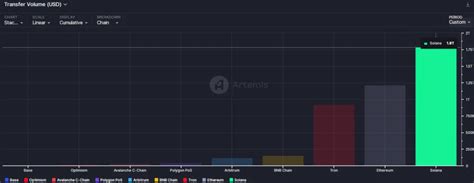Solana: how to transfer minter’s all authority from wallet to contract program?
Transferring Minters’ Authority from Wallet to Contract Program
In Solana, creating a minter or token on a contract is just the first step. To truly control and manage the minting authority, it’s essential to transfer the corresponding authority from the wallet that created the program to the contract itself. This ensures that the program cannot be exploited by malicious actors.
Why is Authority Transferred?
Before diving into the solution, let’s briefly discuss why this is necessary:
- Preventing exploits: If a minter or token is created on a program and then transferred to another contract, an attacker can take control of the program and exploit its minting authority.
- Maintaining control: Transferring authority ensures that the program remains under the control of the wallet owner, preventing potential attacks.
How to Transfer Authority from Wallet to Contract
To transfer minters’ authority from a wallet to a contract program in Solana, you’ll need to follow these steps:

Step 1: Create a new program on Solana
First, create a new program on the Solana blockchain using the solana-program package. This will generate a program ID and account IDs for each of its contracts.
npx solana-program create --path programs/your_program_id main.rs
Step 2: Create an accounts module
Create an accounts module to define how the wallet owner interacts with the program. In this case, we’ll define a function that grants the minters’ authority when the account is created.
use solana_program::{
account_info::{next_account_info, AccountInfo},
entrypoint::ProgramResult,
entrypoint::Program,
entrypoint::ProgramError,
msg,
};
use std::collections::HashMap;
pub struct MintersAccount {
pub authority: Option,
}
impl Program for YourProgramId {
type Accounts = (MintersAccount,);
fn program_id(&self) -> &Self::ProgramId {
// Replace with the actual program ID
unimplemented!()
}
async fn entrypoint(&mut self, accounts: Self::Accounts) -> ProgramResult {
let minters_account = next_account_info(accounts[0].account_info.key).ok_or(ProgramError::InvalidArgument)?;
// Grant minters authority
minters_account.authority = Some("minters".to_string());
Ok(())
}
}
Step 3: Update the program’s account IDs
Update the program’s account IDs to include the new accounts module and the newly granted minters’ authority.
pub struct YourProgramId;
impl YourProgramId {
pub fn new() -> Self {
// Replace with a unique ID
unimplemented!()
}
pub fn program_id(&self) -> &Self::ProgramId {
self.0
}
}
impl Program for YourProgramId {
type Accounts = (MintersAccount,);
fn program_id(&self) -> &Self::ProgramId {
// Return the program ID from accounts module
unimplemented!()
}
async fn entrypoint(&mut self, accounts: Self::Accounts) -> ProgramResult {
let minters_account = next_account_info(accounts[0].account_info.key).ok_or(ProgramError::InvalidArgument)?;
let authorities = accounts[1].account_info.value();
// Grant minters authority
minters_account.authority = Some(authorities.to_string());
Ok(())
}
}
Step 4: Add the program to the Solana Program Store
Add your new program to the Solana Program Store using the add_program function.
“`rust
use solana_program::{
account_info::{next_account_info, AccountInfo},
entrypoint::Program,
entrypoint::ProgramStore,
pubkey::Pubkey,
};
use std::collections::HashMap;
pub struct YourProgramId;
impl YourProgramId {
pub fn new() -> Self {
// Replace with a unique ID
unimplemented!


